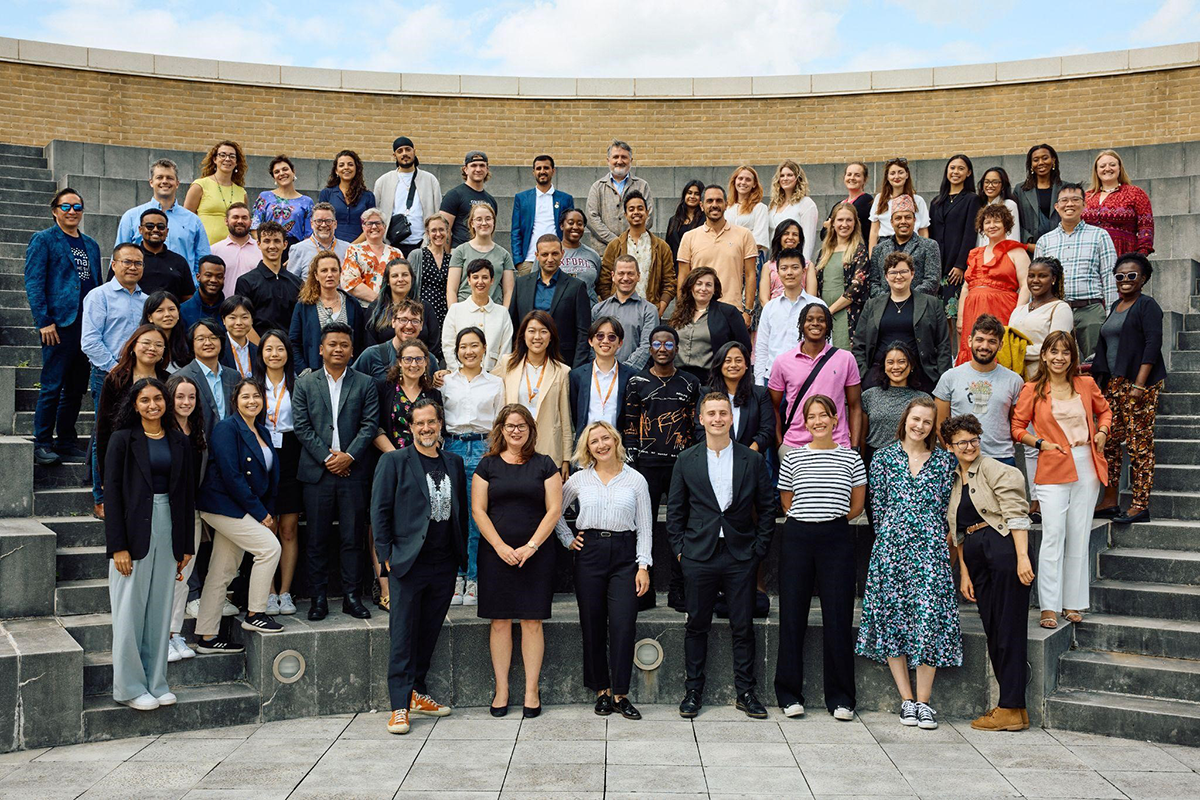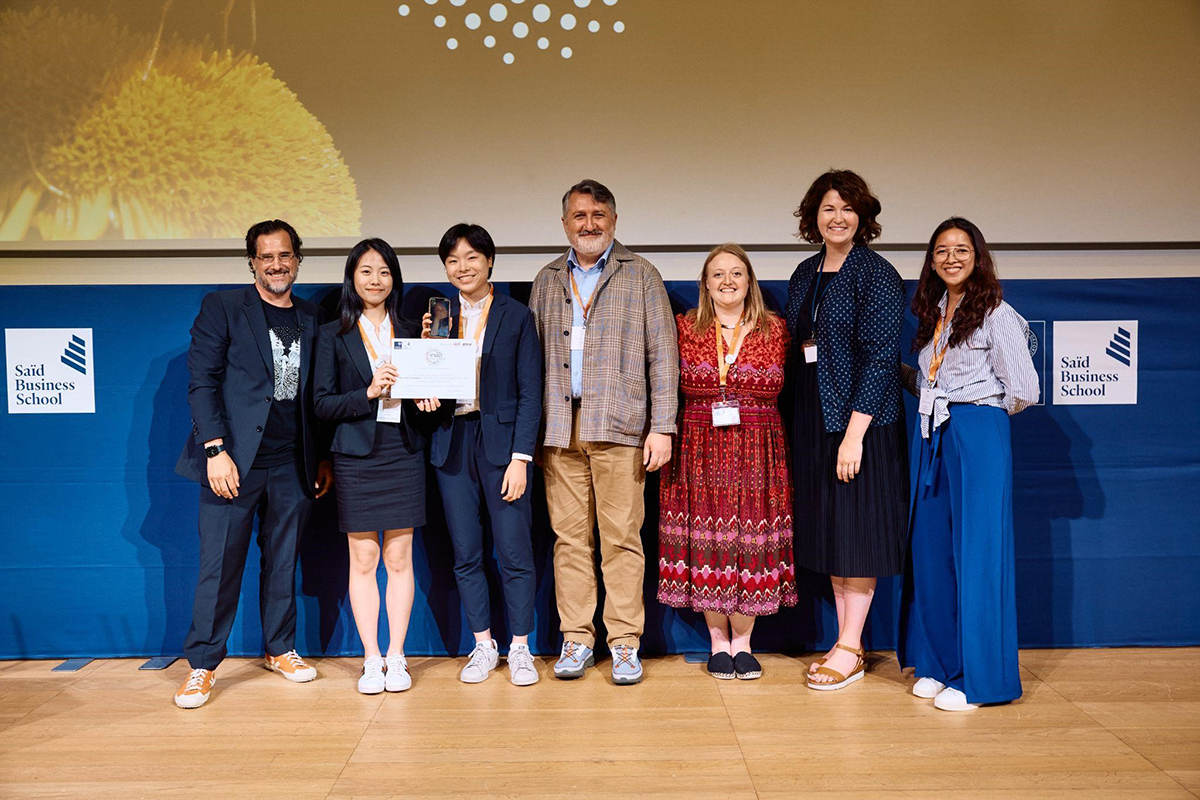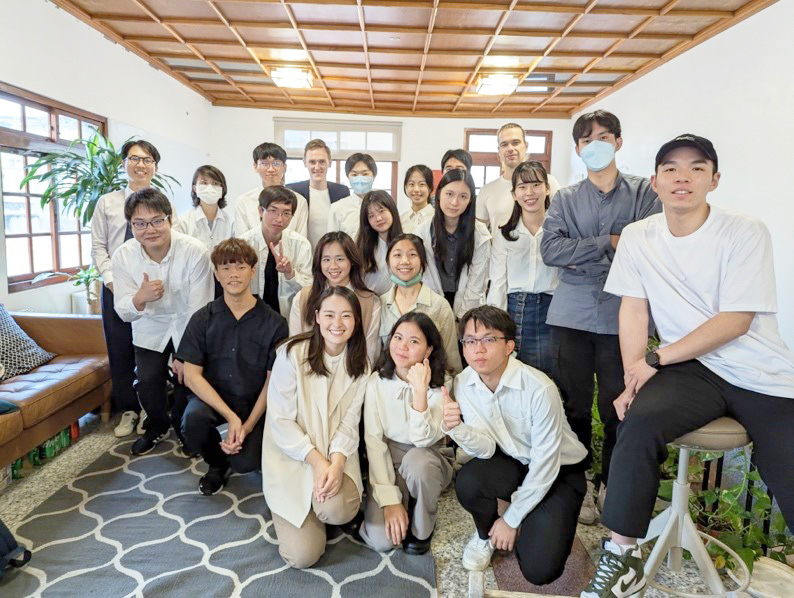▎HONOR
Mapping the Future of Optimal Aging: NTU Team Wins Oxford Social Innovation Competition

In addition to workshops and experiences during the final round of competition, finalists were also treated to a dinner at the University of Oxford Museum of Natural History. Photo courtesy of Saïd Business School, University of Oxford.
Already on the precipice of super-aged society status, Taiwan is on the leading edge of a challenging global trend. This year’s University of Oxford Map the System competition was just the latest example of that growing interest, awarding NTU undergraduates Yu-Chun Lin, Joyce Fu, and Julia Lin third prize at the global finals this July.
Hosted by the Saïd Business School and the Skoll Centre for Social Entrepreneurship, Map the System is unique among social innovation challenges. It pushes back against the stereotype of the social entrepreneur as a solitary "hero" wielding a singular, transformative solution that will "fix” everything. Instead, the competition rewards teams that deeply explore both the full complexity of the challenge and the landscape of existing solutions to identify “impact gaps,” those places where new innovation is most needed and likely to be successful. In other words, participants are discouraged from “reinventing the wheel.”
Having emerged as one of 17 finalists from a semi-final in May, the NTU team travelled to Oxford in July where they spent the week leading up to the competition immersed in workshops and activities designed to deepen their skills as social entrepreneurs. “We learned a lot. Even though it was a competition, we felt connected to the other teams through shared values and commitment to create a better world,” recalled Julia and Yu-Chun.
While many of the teams in the finals included graduate students and those with real-life startup experience, the NTU team’s project stood apart thanks to some unexpected insights developed through tireless consultation with system stakeholders. One such insight was into the Confucian value of filial piety. The team identified that it can lead seniors to internalize feelings of uselessness, triggering a vicious cycle of social withdrawal and declining mental and physical health. Framing this as a feedback loop, the team made a complex issue readily accessible to a wider audience and stimulated the judges’ interest.
When asked to give advice to future Map the System participants, Julia, Joyce, and Yu-Chun stressed several keys to success:
The first is to select the right topic, striking a balance among universal relevance, personal motivation, and the need to give priority to historically marginalized populations. Were they to start the competition anew, the NTU team said they would focus in on the intersecting challenges faced by rural-elderly populations—a group that often has the fewest resources and yet faces the highest hurdles in achieving optimal aging.
Secondly, future teams should seek to collaborate with NTU faculty members, selecting at least one expert in the chosen subject matter and another with experience with social innovation. The side effect of responding to Map the System’s unique requirements: it’s a unique opportunity to build bridges across campus.
Third, the team emphasized the importance of picking up systems thinking and mapping skills. Without being able to make sense of and organize the findings, the inquiry risks either being too simplistic or alienating stakeholders with the complexity. Joyce and Yu-Chun credited their success, in part, to an internship at systems mapping firm Omplexity and hope that in the future, more students will be able to study systems thinking at NTU.
But the most important key to success, they say, comes from within when teams adopt the mindset of an innovator.
“This isn’t just research,” they said, “you have to really want to make an impact.”

Those intrigued by Map the System have the opportunity to register for a 1-credit course on "Systems Thinking and Learning Organization" this coming fall, taught by Prof. Joe Hsueh, a respected scholar, internationally renowned for his systems maps for such leading organizations as the Walton Family Foundation, Sustainable Apparel Coalition, the World Bank, and so forth.
NTU’s final presentation archived live stream.

Yu-Chun Lin (Right) and Julia Lin (Left) presenting their talk at Map the System 2023 Global Finals at Oxford, 3 July 2023. Photo courtesy of Saïd Business School, University of Oxford.

39 schools competed in Map the System 2023. National Taiwan University took 3rd place. Photo courtesy of Saïd Business School, University of Oxford.

From left, Skoll Centre Director, Peter Drobac, presents Julia Lin, Joyce Fu (On Mobile), and Yu-Chun Lin with their award for third prize. Photo courtesy of Saïd Business School, University of Oxford.

Thanks to everyone who participated in Map the System at NTU and to Prof. Hsueh’s company, SIMFO, for hosting the local competition.

